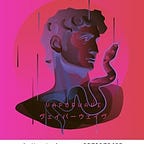On the Addictive Properties of Philosophy
Philosophy, similar to the psychotropic substance, gifts users with the ability to re-invent the world through new perspectives. As users first embark on their journey through the philosophical text, so forthcoming is a new set of eyes, perceiving things in ways that once seemed impossible, if not unimaginable. What was once unseen, belonging to a noumenal space reserved in the deep confines of the human mind, begins to flow from user to the physical. As a substance virgin cannot begin to understand the perspective established upon administration of the drug, so too can the philosophical virgin fail to comprehend and communicate with the hypocognitive perspective.
Once seen, or experienced, however, the user can no longer return to the cognitive perspective of familiarity, as the unfamiliar perspective holds new space in the user’s eyes, battling between normal and novel. This sense of novelty belonging to the philosophical text parallels so closely to the novelty of the psychotropic perspective. As both begin to be addictive in nature, encouraging further consumption for the brave user, one may feel a sense of loneliness and detachment from what was once considered reality. No longer can the substance-based addict connect and relate to the normal, and no longer can the philosophical addict connect and relate to the socially construed sense of realistic normality.
The more one indulges, the more one begins to confuse the two perspectives. Rapidly, the psychotropic clutches users’ throats in a firm grasp, dominating the mind’s construction of perception. What was once novel is now the new normal. The philosophical has fully shifted the way one perceives, construes, and behaves. Now the world functions through a (still psychotropic) yet philosophical lens, and indulgence in the substance of philosophy becomes crucial for the text-based addict.
